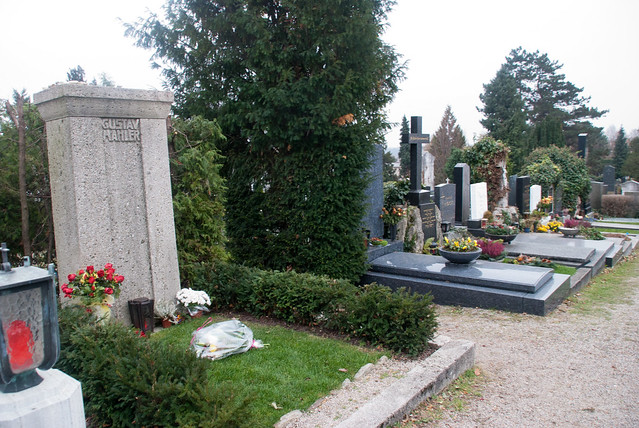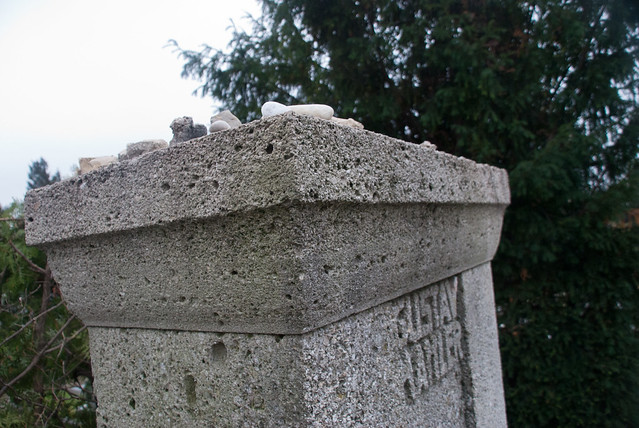“A symphony must be like the world. It must contain everything.” – Gustav Mahler
I’m spending Thanksgiving in Krakow, but I am blogging a few days behind. So here’s Vienna.

Gustav Mahler in the Vienna Museum of Sound
There is not enough time in the world to soak yourself in the high culture of Vienna’s art and music. For centuries, the greatest minds in classical music, from Mozart to Beethoven to Strauss and and Schoenberg came to Vienna to compose and perform their works.
Art museums of all kinds dot the city. I saw two museums in one day and was almost knocked dead with culture.

Wiener Schnitzel, a breaded and tenderized veal cutlet
I didn’t come to Vienna to look for any of those composers though. I came to look for the greatest composer that ever lived–Gustav Mahler. His output is small compared to the other greats, a set of symphonies and some song, but within those works lies the whole world. He described himself as “thrice homeless, as a native of Bohemia in Austria, as an Austrian among Germans, as a Jew throughout the world—always an intruder, never welcomed.”
His symphonies were epic in size and scope, and broke the limits of what was known at the time. There were no small works from Mahler, no trite sonatas or pleasant quartets. Every work was an expansive exploration that tried to span the entire range of human emotion. It is the Sixth Symphony, the “Tragic”, that has always been my favorite. In the final movement, three hammer blows crush the hero into bleak nihilism, relevant today as we face an uncertain world. His life was constant struggle, and it shows in his work.
“I am hitting my head against the walls, but the walls are giving way.” – Gustav Mahler
Go big, or go home. In Mahler’s work, the listener is alternately drained and inspired. It is the soundtrack of my life.
I won’t waste any more words trying to write about his music, go look it up yourself. Writing about music is like photographing a sculpture, it will never convey the true nature of the work.
Mahler is buried in Grinzig Cemetery on the outskirts of Vienna. As is Jewish tradition, pebbles left by visitors line the top of his headstone.



I stared out the train window as it passed through the Austrian countryside that inspired his greatest work. Perhaps he knew while alive, deep down, that a century after his death people from continents away would come just to leave a single stone.
“All that is not perfect down to the smallest detail is doomed to perish.” – Gustav Mahler


